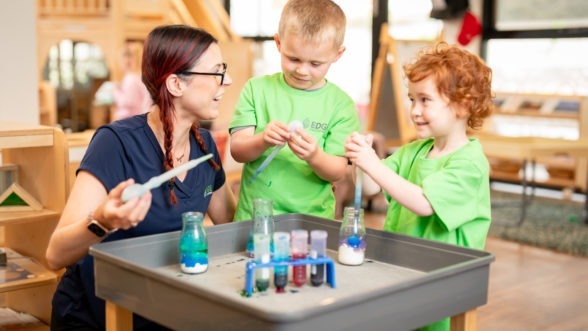
Education, Top News
Education
13 March, 2025

Independent play is one of the earliest stages of play, evolving as children grow. It is simply time spent alone (supervised, of course) with the freedom to explore, problem-solve and develop their own likes and dislikes.
Playing independently gives children the opportunity to use their imaginations and develop their creativity and self-confidence. Children learn how to make decisions, solve problems and experience the sense of accomplishment that comes from their success.
Babies can start showing a desire to play independently as young as two or three months old. They may reach for toys and interact with them, cooing and giggling. As children grow and develop, they progress through stages of play. Toddlers playing solo may stop what they’re doing to watch another child at play. As they get older, you may notice children playing alongside each other. At around three to four years old, children will start talking to other children playing nearby and may interact to a small extent. At around four or five-years-old children start playing co-operatively.
Create an environment where children are happy to engage in independent play. Put away any distractions – that absolutely means screens – and set up an “invitation to play”, perhaps an activity or set of toys. Mixing things up will give your child a range of learning experiences. Offering toys and activities that children are familiar with will help make independent play a success.
It may be helpful to have a routine where independent play is encouraged at the same time each day, for example, after a nap or while you’re preparing dinner. This way your child knows what is expected of them. Babies may be comfortable lying on a rug with a few toys or soft books, while older children may like to sit at a child-sized table. Resist the urge to join in or make comments about their play so children can develop their independence.
Independent play can be just about anything. Be led by your child and what they enjoy. For example:
Edge Early Learning incorporates independent play into our curriculum. Our educators recognise the stages of play in children’s development and the benefits of allowing children to progress through these stages at their own pace. We are conscious not to disrupt children while they are exploring new interests through a period of solitary or independent play and provide educational resources and provocations for children to explore.
Learn more about our approach to learning!